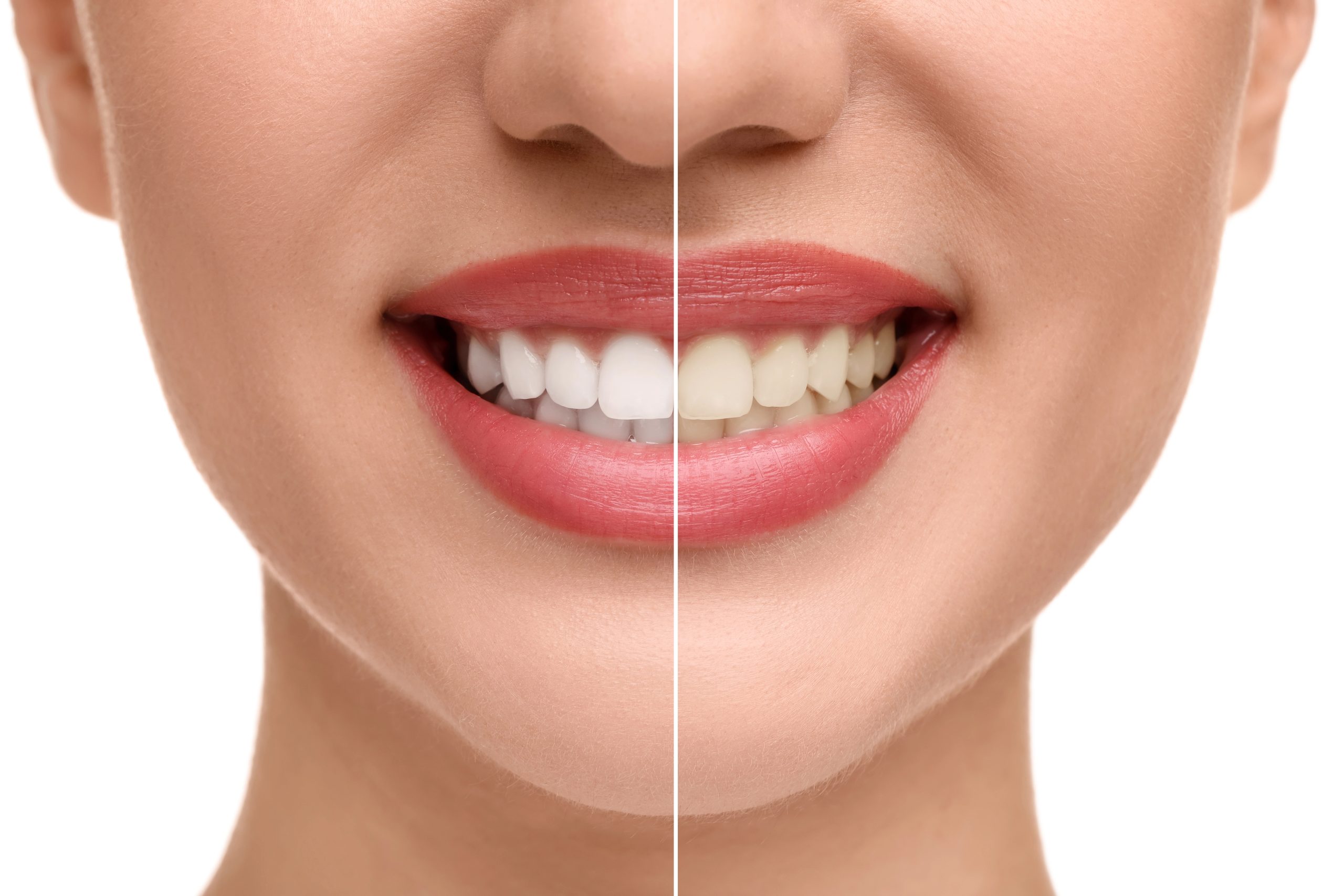Is Teeth Whitening Right for You?
Teeth whitening has become an increasingly popular cosmetic dental procedure, offering individuals a chance to enhance their smiles and boost their confidence. However, before diving into the world of teeth whitening, it’s essential to understand whether this treatment is suitable for you. This blog post will explore various aspects of teeth whitening, including what causes tooth discoloration, the differences between professional whitening and at-home kits, candidacy for the procedure, and much more.
What Causes Tooth Discoloration?
Tooth discoloration can occur for several reasons, making it crucial to identify the underlying cause before embarking on a whitening journey. Common factors include:
1. Food and Beverages: Consuming dark-colored foods and drinks such as coffee, tea, red wine, and berries can lead to staining over time.
2. Tobacco Use: Smoking or using tobacco products is notorious for causing significant tooth stains.
3. Aging: As individuals age, enamel wears down, revealing the yellowish dentin beneath.
4. Medications: Certain medications, particularly antibiotics like tetracycline, may contribute to discoloration.
5. Genetics: Some people naturally have thicker or thinner enamel, which can affect how stained their teeth appear.
Understanding these causes can help patients make informed decisions about teeth whitening options that best suit their needs.
Professional Whitening vs. At-Home Kits
When considering teeth whitening, one must weigh the pros and cons of professional whitening versus at-home kits.
Professional Whitening: Offered by dentists, treatments like Zoom whitening provide immediate results under controlled conditions. These procedures typically use stronger bleaching agents than those found in over-the-counter products, ensuring effective stain removal while minimizing risks.
At-Home Kits: While convenient, at-home kits often yield slower results and may not be as effective for stubborn stains. They require consistent application over days or weeks, and users must follow instructions carefully to avoid uneven whitening or gum irritation.
Ultimately, consulting with a dentist can guide individuals toward the most appropriate option based on their specific circumstances.
Am I a Good Candidate for Teeth Whitening?
Not everyone is an ideal candidate for teeth whitening. Factors influencing candidacy include:
– Existing Dental Issues: Individuals with cavities, gum disease, or other oral health problems should address these issues before undergoing whitening.
– Type of Stains: Yellowish stains generally respond well to whitening, whereas gray or brown stains might require alternative solutions.
– Age Considerations: Most dentists recommend waiting until late adolescence when adult teeth are fully developed.
For personalized advice, potential candidates should consult with a qualified dentist who understands individual needs and goals.
What to Expect During In-Office Whitening
During an in-office whitening session, patients can expect a straightforward process designed for comfort and effectiveness. Initially, the dentist will assess the patient’s teeth and gums, ensuring they are healthy enough for the procedure. Protective barriers are then applied to shield the gums from the whitening agent.
The dentist will apply a powerful bleaching solution to the teeth and may use a special light to accelerate the whitening process. Sessions usually last around 60 to 90 minutes, resulting in noticeably brighter teeth by the end.
Patients often leave the office feeling rejuvenated, equipped with a radiant smile that reflects their enhanced self-confidence.
Post-Treatment Care and Sensitivity Tips
After undergoing teeth whitening, some individuals may experience temporary sensitivity. To mitigate discomfort, consider the following tips:
– Use Desensitizing Toothpaste: Switching to a toothpaste formulated for sensitive teeth can help ease any discomfort.
– Avoid Hot and Cold Foods: For the first few days post-treatment, steer clear of extreme temperatures to minimize sensitivity.
– Maintain Oral Hygiene: Continuing a robust oral care routine helps prolong whitening effects and supports overall dental health.
Following these guidelines ensures that patients enjoy their new smiles without unnecessary discomfort.
How Long Will the Whitening Results Last?
The longevity of teeth whitening results varies among individuals. Generally, professional whitening can last anywhere from six months to two years, depending on lifestyle choices, oral hygiene practices, and dietary habits. To maximize results, regular dental check-ups and cleanings are advisable, along with avoiding stain-causing substances whenever possible.
Frequently Asked Questions
Q1: Is teeth whitening safe for sensitive teeth?
A1: Yes, many professional whitening options are designed specifically for sensitive teeth. Dentists can tailor treatments to ensure safety and comfort.
Q2: Can I whiten veneers or crowns?
A2: Unfortunately, traditional whitening methods do not work on veneers or crowns. It’s best to consult with a dentist regarding alternatives if these restorations are present.
Q3: How often can I repeat teeth whitening?
A3: The frequency of whitening depends on individual factors; however, a dentist can provide guidance tailored to each patient’s unique situation.
In conclusion, understanding the nuances of teeth whitening allows individuals to make informed decisions about enhancing their smiles. With proper consultation and care, achieving a bright, confident smile is within reach.
Ready to Transform Your Smile?
If you’re considering teeth whitening, Renken Dentistry Crystal Falls offers personalized and comprehensive care tailored to your unique needs. With affordable dental care options and a commitment to community-focused service, Dr. Renken is here to help you achieve the smile you’ve always wanted. Call (737) 257-6096 today to schedule your consultation, or visit our Teeth Whitening page for more information. If you prefer, reach out through our contact form. Your journey to a brighter smile starts now!

